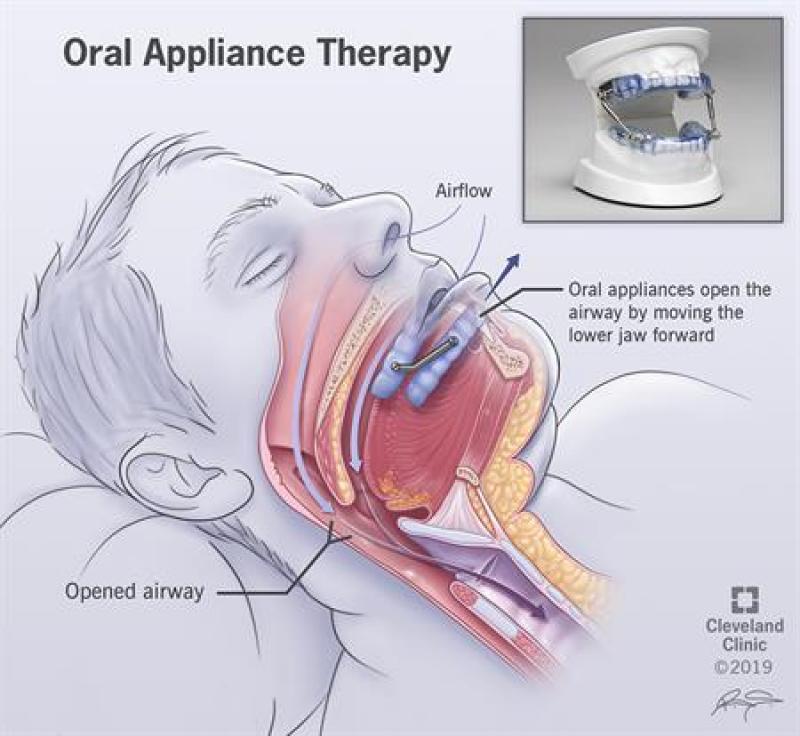Sleep apnea is a prevalent sleep disorder characterized by pauses in breathing or shallow breaths during sleep. These interruptions in breathing can last for a few seconds to minutes and may occur numerous times throughout the night, leading to fragmented and poor-quality sleep. To address this issue and improve the sleep quality and overall health of individuals affected by sleep apnea, innovative sleep apnea devices have emerged as valuable tools in the field of sleep medicine.
Understanding Sleep Apnea: Before delving into the advancements in sleep apnea devices, it is essential to grasp the significance of this sleep disorder. Sleep apnea can be categorized into two main types: obstructive sleep apnea (OSA) and central sleep apnea. OSA is the most common form, caused by a partial or complete blockage of the airway due to relaxed throat muscles during sleep. Central sleep apnea, on the other hand, occurs when the brain fails to send proper signals to the muscles responsible for controlling breathing.
Continuous Positive Airway Pressure (CPAP) Devices: One of the most widely used and effective sleep apnea devices is the CPAP machine. CPAP devices work by delivering a continuous stream of air through a mask worn over the nose or mouth, creating positive airway pressure that keeps the airway open during sleep. By preventing airway collapse, CPAP devices ensure a steady flow of oxygen, improving breathing patterns, and reducing the number of apneic events. Patients who use CPAP devices often experience significant improvements in sleep quality, daytime alertness, and overall well-being.
BiPAP and APAP Devices: In addition to CPAP machines, there are other positive airway pressure devices, such as BiPAP (Bilevel Positive Airway Pressure) and APAP (Auto-titrating Positive Airway Pressure) devices. BiPAP machines provide two different levels of air pressure—one for inhalation and another for exhalation—to accommodate patients who may find it difficult to exhale against a continuous pressure. APAP devices are designed to automatically adjust the pressure based on the patient's breathing patterns throughout the night, ensuring the most comfortable and effective therapy.
Oral Appliances: For individuals with mild to moderate sleep apnea or those who are unable to tolerate CPAP therapy, oral appliances offer an alternative treatment option. These devices are custom-made by dentists or orthodontists and are designed to reposition the jaw and tongue to keep the airway open. Oral appliances are often more comfortable and less invasive than CPAP masks, making them a suitable choice for some patients.
Adaptive Servo-Ventilation (ASV) Devices: ASV devices are specifically designed to treat central sleep apnea, a less common but potentially severe form of sleep apnea. ASV machines continuously monitor a patient's breathing patterns and deliver precise pressure support to maintain regular breathing. These devices are particularly useful for individuals with complex sleep-disordered breathing and those with certain heart conditions.
Inspiring New Innovations: The field of sleep apnea devices continues to witness exciting innovations. Some devices incorporate advanced technology, such as wireless connectivity and mobile applications, to monitor and track patients' sleep data. These features allow patients and healthcare providers to assess treatment effectiveness and make necessary adjustments for optimal outcomes. Additionally, new materials and designs are continually being developed to enhance device comfort and patient compliance.
The Impact on Sleep Quality and Health: Sleep apnea devices play a crucial role in improving sleep quality, which, in turn, positively impacts overall health. Adequate, restful sleep is essential for various bodily functions, including memory consolidation, hormone regulation, and immune system support. By effectively managing sleep apnea, these devices help reduce the risk of related health issues such as cardiovascular diseases, diabetes, and daytime fatigue.
Seeking Professional Advice: While sleep apnea devices offer significant benefits, it is essential to seek professional guidance for proper diagnosis and treatment. Sleep studies conducted in sleep centers or home sleep testing can help determine the most appropriate device for individual needs. Healthcare providers, including sleep specialists and respiratory therapists, play a vital role in guiding patients through the process of selecting, fitting, and adjusting these devices for optimal results.
In conclusion, sleep apnea devices have revolutionized the management of sleep apnea, significantly improving sleep quality and overall health for individuals affected by this disorder. From CPAP machines to oral appliances and advanced ASV devices, the field of sleep medicine continues to advance, providing innovative solutions for a restful and rejuvenating sleep experience. With the right device and proper professional support, individuals can reclaim their nights and wake up to a healthier, more energized tomorrow.
